Heads up, World Cup teams: The robots are coming
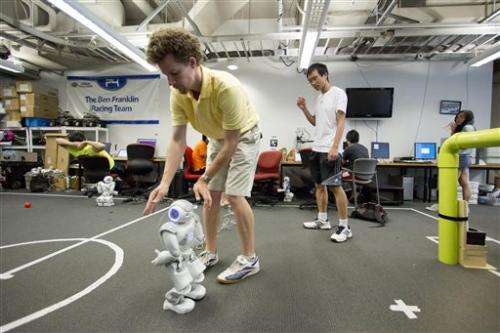
When robots first started playing soccer, it was a challenge for them just to see the ball. And to stay upright.
But the machines participating in this month's international RoboCup tournament are making passes and scoring points. Their ultimate goal? To beat the human World Cup champs within the next 35 years.
"It's hard to predict what will happen in 2050, but we are on the right path," said event co-founder Manuela Veloso, a computer science professor at Carnegie Mellon University in the U.S.
A week after the World Cup title game, teams from 45 countries will face off at RoboCup in the Brazilian coastal town of Joao Pessoa.
The "players," which range from life-size humanoids to wheeled objects the size of soccer balls, compete in size-based divisions on miniature indoor fields. The tournament runs from July 19-25.
While certainly fun to watch, organizers say the annual competition isn't just about creating kicking machines. It's about teaching the fully autonomous robots to make quick, smart decisions while working together in a changing environment.
Those algorithms can translate off the field into technology like self-driving cars or delivery drones, said University of Pennsylvania engineering professor Dan Lee. RoboCup includes separate contests for service robots and search-and-rescue droids.
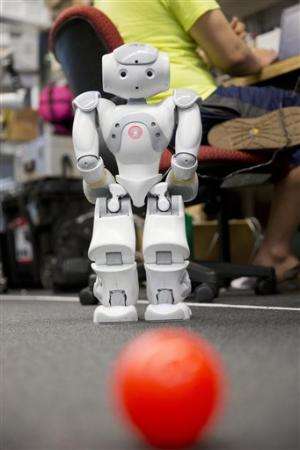
Lee, who directs Penn's robotics lab, has been the head "coach" of the school's RoboCup soccer teams since 2002. Back then, the games resembled those played by 5-year-old children, Lee said.
"They would all cluster together," he said of the robots. "Whoever got the ball would have a hard time figuring out which way to kick the ball."
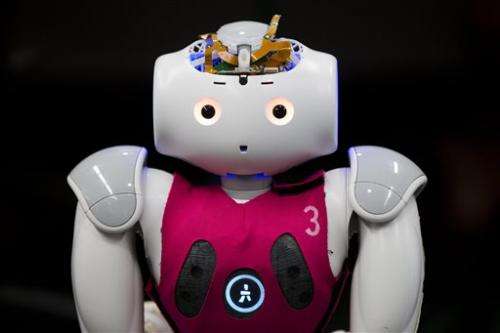
Now, it's like watching 10-year-olds execute basic athletic skills and strategies, said Lee. The battery-powered creatures play much shorter matches—about 20 minutes, compared with 90 minutes in the World Cup—but generally follow the same rules. Humans referee the games, entering their calls into a computer that communicates with the robots.
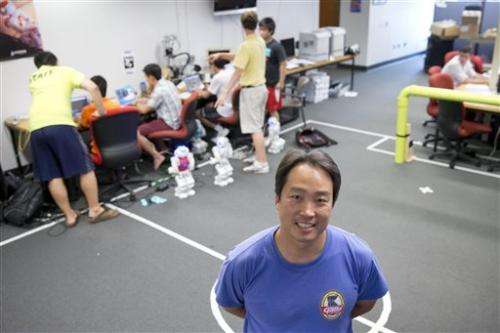
When RoboCup first began in 1997, Veloso said, most robotics research focused on the abilities of single machines, such as NASA's Sojourner rover on Mars. RoboCup seeks to emphasize machine collaboration, she said.
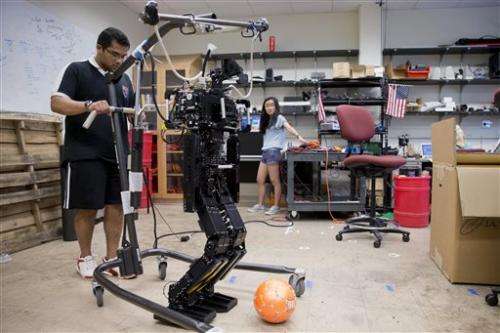
Robot types and technologies are evolving as quickly as smartphones, RoboCup co-chairman Alexandre da Silva Simoes said in an email. Organizers make the game tougher each year by changing parameters like field size or number of players.
Next year, Veloso said, the robots might play outside.
More information: www.robocup2014.org/
© 2014 The Associated Press. All rights reserved.




















